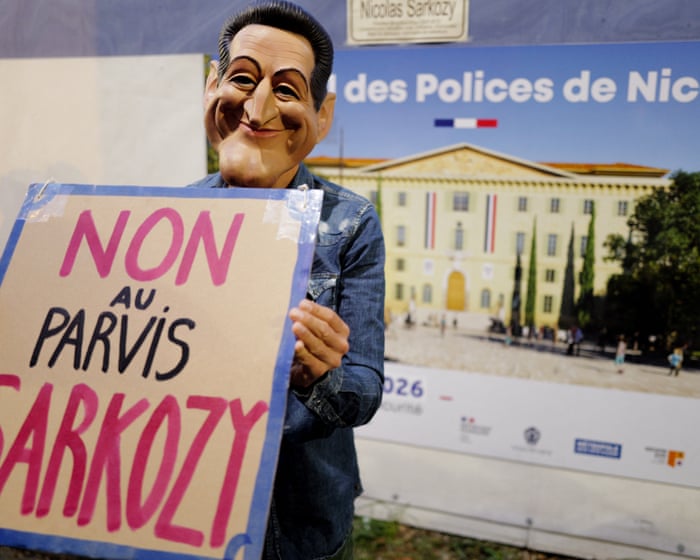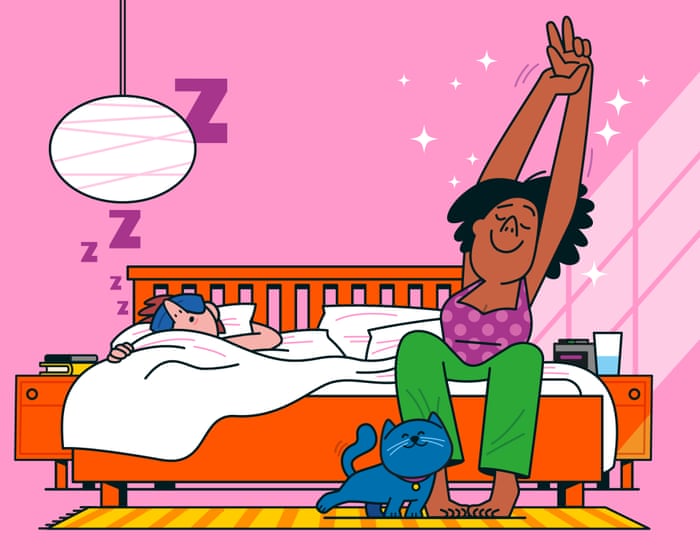Twenty years ago, a tragic event altered the course of my life. In late October 2005, three teenagers from Clichy-sous-Bois, a suburb north of Paris, were on their way home from a football match when police began chasing them. Zyed Benna, Bouna Traoré, and Muhittin Altun had done nothing wrong—a later investigation confirmed this—but in their panic, they hid in an electrical substation. In a cruel twist of fate, Zyed and Bouna were electrocuted on October 27, 2005, while Muhittin suffered severe burns that left him scarred for life.
Their deaths sparked the worst riots France had seen in years and transformed me into a dedicated activist against racism and inequality. Yet some politicians responded by blaming the victims. The interior minister at the time, Nicolas Sarkozy, initially suggested the teenagers had committed burglary and famously stated, “If you have nothing to hide, you have nothing to fear from the police.”
Sarkozy advocated a strict, zero-tolerance approach to crime. One might assume, then, that he would accept his own punishment without complaint. But today, it is Sarkozy who finds himself imprisoned.
His jailing is unprecedented: aside from Louis XVI, executed during the revolution, and Philippe Pétain, imprisoned for collaborating with Nazi Germany, no French head of state has ever served a prison sentence. The court president ruled that Sarkozy’s offenses were “exceptionally serious acts, likely to undermine public trust in those who represent them.”
So, what exactly are these grave offenses? Sarkozy was convicted and sentenced to five years for criminal conspiracy in the so-called Libyan campaign-funding case, related to his 2007 presidential bid. He denies any wrongdoing and has appealed. The court found him guilty of making a deal with Muammar Gaddafi’s regime to secure illegal campaign funds. He allegedly allowed close associates to make promises to Libya, including maintaining ties with Abdullah al-Senussi—Gaddafi’s brother-in-law and a convicted terrorist responsible for the 1989 bombing of a Paris-bound airliner that killed 170 people. The judges considered the victims’ families in that attack to be harmed by this corrupt agreement.
In 2005, Nicolas Sarkozy declared, “If you have nothing to hide, you have nothing to fear from the police.” Yet despite a decade-long investigation—with Mediapart revealing details as early as 2011—the work of about 100 magistrates, and a 400-page judgment, Sarkozy called his conviction a “violation of the rule of law.”
An astonishing number of prominent supporters rushed to his defense. Shortly after his conviction and before he entered prison, Justice Minister Gérald Darmanin visited him, claiming it was “as a friend” and expressing “great sadness for Nicolas Sarkozy.” Despite warnings from senior judges about compromising judicial independence, Darmanin visited him again in prison, leading to a lawsuit from 30 lawyers accusing him of bias.
Other politicians joined in showing support. The mayor of Nice announced plans to name a city square after Sarkozy, and Emmanuel Macron received the former president at the Élysée before his incarceration. Sarkozy even hosted a farewell gathering, and his family organized a public send-off where crowds applauded as he left home for custody, some shouting, “Shame on the justice system!”
From the moment the verdict was announced, media outlets almost unanimously gave a platform to those condemning the court’s decision and proclaiming his innocence. To me, one particular testiA friend of Sarkozy perfectly captured the sentiment behind the outcry when he lamented on a radio show that prison is “a shock for people like us, it’s terrible,” adding, “We’re not made for that, we’re not animals.” Setting aside the speciesist implication, who exactly are the “animals” considered fit for prison?
Likely those without the means to have family members defend them publicly. It’s important to remember that criminal conspiracy can lead to up to 10 years in prison—double the sentence Sarkozy received.
In France, nearly one-third of prisoners, like Sarkozy, are awaiting trial, and hundreds are detained daily under immediate enforcement orders. In 2022, 88% of prison sentences of two years or more were enforced immediately. Yet, the court allowed Sarkozy a rare privilege: instead of immediate incarceration, he was given weeks to prepare, even attending his daughter’s birthday.
France has been repeatedly criticized for excessively long pre-trial detentions. Did Sarkozy’s allies ever voice concern about this before?
Moreover, last month, the chief inspector of prisons warned of the “alarming disrepair” in many facilities, plagued by infestations of cockroaches, rats, or bedbugs—conditions that violate detainees’ fundamental rights.
While Sarkozy has a private cell for security reasons, France ranks second in the EU for prison overcrowding, a grave insult to human dignity.
Our principles are violated daily in prisons, and I believe the system is fundamentally flawed. I argued for a complete overhaul of justice in the foreword of a recently translated essay collection on prison abolition, advocating for a reparative approach that empowers victims rather than dehumanizing offenders.
Sarkozy built his career on a harsh, punitive stance toward crime, especially repeat offenders. Yet, he now faces his second custodial sentence—the first served with an electronic tag. He is experiencing the very system he championed, the same philosophy that led to the tragic deaths of Zyed and Bouna 20 years ago.
It’s striking to see those who routinely decry judicial leniency and demand stricter laws suddenly argue that such reasoning shouldn’t apply to Sarkozy. This reaction exposes a caste mentality, where some lives are deemed unworthy and subjected to cruel conditions, while others are spared.
The case is grave: a former French president convicted of conspiring to receive funds from a foreign power that committed terrorism against its own people. Even more serious is hearing this man, who always advocated for harsher penalties, now act as if he is above the law.
Rokhaya Diallo is a Guardian Europe columnist.
Do you have an opinion on the issues raised in this article? If you would like to submit a response of up to 300 words by email to be considered for publication in our letters section, please click here.
Frequently Asked Questions
Of course Here is a list of FAQs about Nicolas Sarkozys legal troubles framed in a natural tone with direct answers
BeginnerLevel Questions
1 Who is Nicolas Sarkozy
He is a former President of France serving from 2007 to 2012
2 What is he most known for
He is known for his energetic and direct style a tough law and order approach to crime and probusiness economic policies
3 Why do people say his stance came back to haunt him
Because he famously advocated for harsh punishments for criminals and now he himself has been convicted and sentenced for crimes creating a sense of irony
4 What was he actually convicted of
He has been found guilty in two major cases so far corruption and influence peddling and illegal campaign financing
5 Did he go to jail
He has been sentenced to prison but the sentences are being appealed and are likely to be served under alternative measures like house arrest with an electronic bracelet rather than in a traditional prison cell
Advanced Detailed Questions
6 What exactly was the corruption and influence peddling case about
The case alleged that Sarkozy offered a prestigious job in Monaco to a senior judge in exchange for confidential information about an investigation into his campaign finances This is often called the wiretapping case because phone calls between Sarkozy and his lawyer were key evidence
7 And what was the illegal campaign financing case
His 2012 reelection campaign spent nearly double the legal limit The case found that his party the UMP used a sophisticated system of false invoices from a public relations firm called Bygmalion to hide the true cost
8 Are there other legal cases pending against him
Yes The most significant one involves allegations that he received illegal campaign funding from the late Libyan dictator Muammar Gaddafi for his 2007 presidential campaign This is an ongoing investigation
9 How does he defend himself
Sarkozy has consistently denied all wrongdoing He claims the charges are a politically motivated witch hunt designed to destroy him and that the justice system is biased against him



